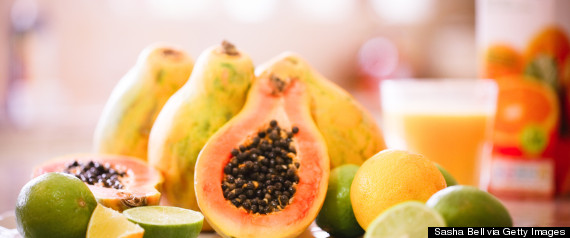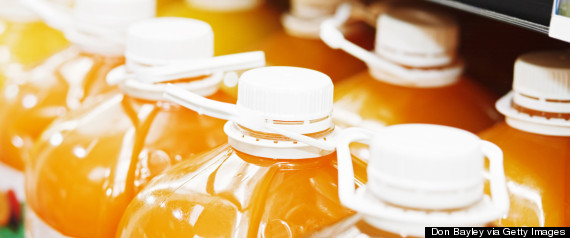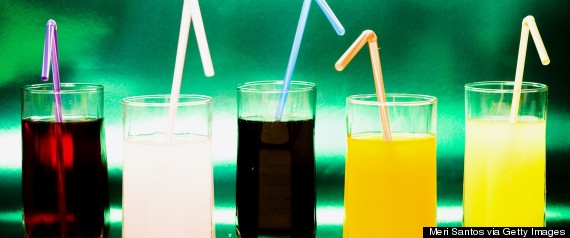By Corrie Pikul
You know orange juice has a lot of sugar -- 21 grams in one small cup -- but is it worse than a cola?
1. The dark secret in your glass of sunshine.

When fruit is stripped of its skin, pulp, flesh and other fibrous parts, it's distilled down to its sweet essence. That means that orange juice has roughly the same amount of sugar as the demon of the nutritional world, soda -- about 5 to 8 teaspoons per cup. Add to this: the sugar in pure, natural juice and the sugar in sugar-sweetened beverages are both densely packed with calories, say Naveed Sattar, MD, PhD, a professor of metabolic medicine at the University of Glasgow. In a recent article in The Lancet Diabetes and Endocrinology journal, Sattar points out that eating whole fruit is associated with a reduced (or neutral) risk of diabetes, but drinking fruit juice is associated with an increased risk.
2. The cold truth.

The marquee vitamin in orange juice, vitamin C, is good for your immune system, and it's an antioxidant that protects cells from free radicals. But some of its benefits are overrated: No studies have been able to conclude that vitamin C helps cure colds. Further, you may not realize that the information on the label of your store-bought juice (even not-from-concentrate brands) refers to the amount of vitamin C that was present when the product was packaged, explains Alissa Hamilton, PhD, a former Food and Society Policy Fellow with the Institute for Agriculture and Trade Policy and the author of Squeezed: What You Don't Know About Orange Juice. All juice loses nutrients over time (that's why the people at the juice bar urge you to drink their blends ASAP), and modern storage technology has radically extended the shelf life of mass-market juices. For example, today’s more efficient mode of storage is to strip the liquid of oxygen and then keep it in million-gallon tanks. The juice can remain in those tanks for upwards of a year. Then after it goes into the carton, it can sit on a truck, in a supermarket, and in your fridge, steadily losing vitamins.
3. The hidden extras.

When juice is processed and treated for storage, it inevitably loses flavor. To remedy this, Hamilton says that big juice manufacturers work with chemical companies to come up with "flavor packs" that make the juice taste like the beverage we know and love -- those are added to the juice before it's packaged for sale. The chemicals in the flavor packs are essences and oils found naturally in oranges, but they don't necessarily come from the same oranges that are in that carton of juice. Hamilton discovered that some of the flavor-makers are known to source their ingredients from countries like Brazil, which has different restrictions and pesticide controls than we have in the U.S.
4. The juicy conclusion:

With its links to obesity, diabetes, heart disease and gout and its utter lack of nutrients, soda is still worse for you than orange juice. The problem comes when non-soda drinkers swap out all their fruit or water for juice, an increasingly common diet habit. "People know that soda is bad for them, but I had one patients in my clinic drinking 2 liters of orange juice a day thinking he was getting all these health benefits, all while gaining weight, causing liver problems and increasing his risk of diabetes," says Sattar. He urges people to drink fruit juice sparingly.


